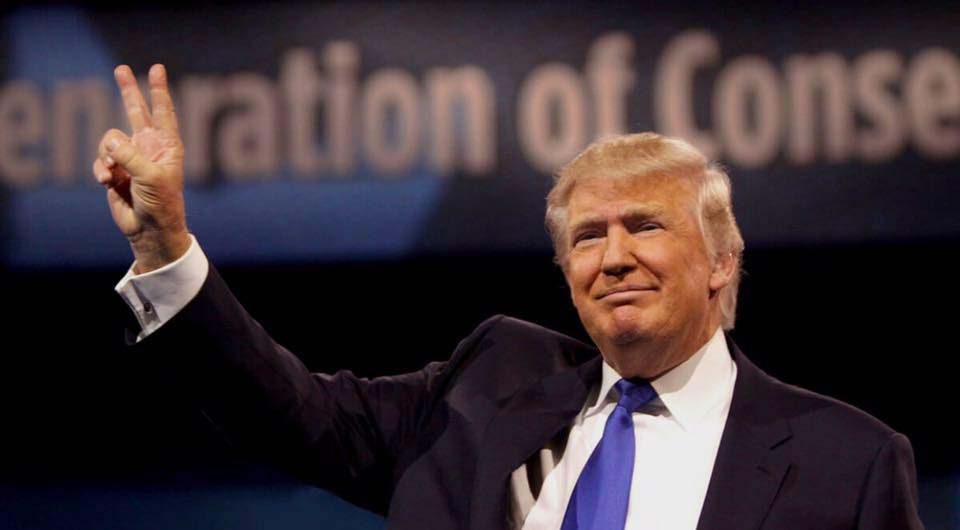
The US’s newly elected president is likely to have a “more acrimonious” relationship with the Middle East than his predecessors, analysts have warned.
Currently, many Arab leaders are viewing President-Elect Donald Trump with “trepidation” due to his anti-Muslim, anti-immigration rhetoric, BMI Research stated in a new paper.
“If Trump continues to make comments perceived as anti-Islamic as President, it would be difficult for governments in the region to openly cooperate with Washington, DC,” it said.
However, the businessman’s “apparent lack of interest in spreading democracy would be welcomed by Gulf monarchs,” BMI added in Trump Presidency: Implications for the Middle East.
Destabilization
According to BMI analysts, Trump is expected to take a harder line with Iran once he assumes the presidency in January.
He will also foster friendlier relations with Israel, which could further destabilize the region, the report said.
Additionally, Trump will prioritize defeating Islamic State (IS) over removing Syrian leader Bashar Al Assad from power, they said.
This goal could cause tensions with Arab leaders, as Trump has previously said he wanted Gulf states to contribute more troops to this fight.
In March, Trump said he would even consider putting a halt to Saudi oil sales unless they put more boots on the ground.

Trump has also supported the idea of allowing Saudi Arabia and other countries to better defend themselves through a nuclear arsenal.
This could mean, for example, that the Trump administration would turn a “blind eye” to the sale of a nuclear weapon from Pakistan to Saudi Arabia.
Such tacit consent could “trigger an atomic arms race in one of the most unstable regions in the world,” BMI said.
Aviation
Despite regional instability, the impact on Qatar and its Gulf peers will likely be “limited,” said Edward Coughlan, BMI’s head of Middle East & North Africa analysis.
He told Doha News that effects could be felt in terms of the strength of the Qatari Riyal, which is pegged to the dollar, and weaker oil prices as Trump increases US output.

But aviation expert Will Horton warned that a Trump administration could spell bad news for Gulf-based airlines.
Trump upset Muslims across the world last December when he announced plans to ban Muslim immigrants from entering the US.
According to Horton:
“Mr. Trump suggesting he would ban Muslims, entirely or partially, is a direct concern for Middle East aviation: Gulf airlines are making America their single largest market. Impacts to airlines could provoke a wider realignment of diplomacy,” he wrote in the National this week.
Ties still strong
For Qatar, other areas of cooperation with the US, including defense, education and business, are likely to remain strong.
Qatar hosts the largest American air base in the region. And a number of key US universities have outposts in Doha’s Education City.
Additionally, this year alone, Qatar has increased investments in the states by taking a stake in the Empire State Building. It also recently forged a multi-billion dollar deal with aircraft manufacturer Boeing.

Qatar’s leaders all heartily congratulated Trump on this week’s win.
In a statement, Emir Sheikh Tamim wished him “success and the relations between the two countries further progress and prosperity.”
And Qatar’s ambassador in Washington, DC tweeted:
Congratulations @realDonaldTrump on your election! Qatar is committed to continue working w/ US on expanding our strong relations.
— Mohamed Jaham (@Amb_AlKuwari) November 9, 2016
Meanwhile, in a message of support, Qatar’s minister of foreign affairs said he was looking forward to “strengthening Qatar-US relations in all fields.”
Finally, Qatar’ Airways’ chief Akbar Al Baker congratulated Trump on his “well-deserved new leadership position.”
What to expect
At the end of the day, Trump’s lack of consistency on policy issues and his unpredictability make it hard to predict US-Gulf relations in the coming years.
But BMI concluded:
“Trump’s first actions in the Middle East will be to increase bombardment of Islamic State, but the terror threat will remain.
Overall, Trump will find the region’s dynamics too powerful to be shaped by the US.”
Thoughts?







